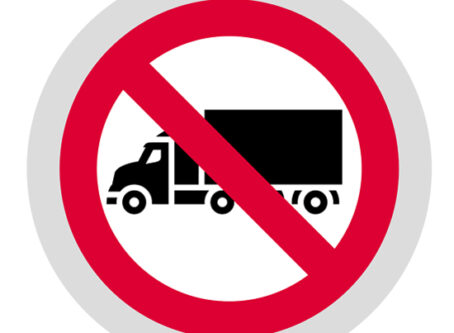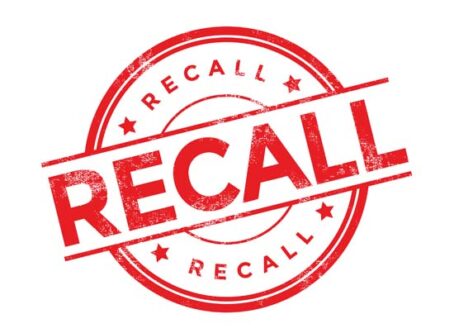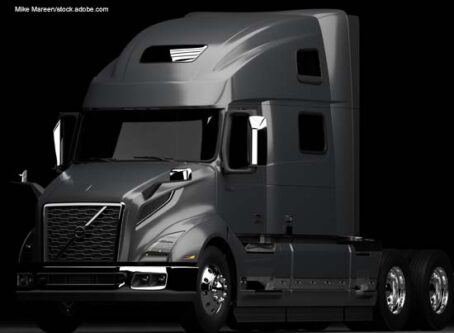Eight Midwestern states consider transportation funding options
Officials at statehouses across the country are working to get deals done to address transportation funding needs. Below is a sampling of discussions about transportation funding options in many Midwestern states.
Illinois
A group of mayors from the Chicago area are calling for legislators to get a deal done to raise the Illinois fuel tax rate.
Officials say the 19-cent gas tax and 21.5-cent diesel tax have remained unchanged for far too long.
Outgoing Chicago Mayor Rahm Emanuel is among the mayors in support of a 20- to 30-cent increase to pay for needed transit and road work.
The group also wants the excise rates tied to inflation, which would allow for regular increases.
Emanuel’s office says every 5-cent-per-gallon increase in the fuel tax raises about $20 million more in city revenue and more than $250 million statewide.
Gov. J.B. Pritzker has said that many transportation funding options are on the table. He has emphasized the need to get something done soon.
“It is time to update and repair our state’s aging infrastructure. Railways, roads, bridges and fresh water arteries are on the verge of collapse,” Pritzker said earlier this month during his inaugural address.
Indiana
One state lawmaker wants to reverse last year’s repeal of the state’s motor carrier surcharge tax.
A 2018 law nixed collection of the surcharge tax in exchange for charging more tax at the fuel pump. Specifically, 19 cents more per gallon for diesel to total 48 cents in excise tax.
According to a fiscal note attached to the 2018 law, the change is expected to increase revenue to the State Highway Fund and decrease revenue to local units of government from the taxes paid by motor carriers.
Rep. Doug Miller, R-Elkhart, has introduced a bill to reimpose the surcharge tax. The excise tax on diesel fuel would be reduced by the same amount.
The bill, HB1346, is in the House Roads and Transportation Committee.
Kansas
There is ongoing discussion at the statehouse about a possible increase in the state’s 24-cent excise rate.
A state task force has recommended that state lawmakers pursue transportation funding options that include sales taxes, the fuel tax, and a fee on electric vehicles. Amounts for possible increases have not been announced.
The panel has recommended that any additional revenue raised for transportation be protected via a lockbox. They note that more than $2 billion in transportation revenue has been rerouted to other budgets in recent years.
Sen. Richard Hilderbrand, R-Galena, has turned the recommendation into legislation. His proposed constitutional amendment would prevent legislators from shifting money from transportation for other purposes.
Advocates point out that the state has shifted more than $1.5 billion from the roads fund over the past three years. Instead, critics of a possible fuel tax increase say funding deficits could be addressed by simply protecting revenue for roads that is already collected.
The effort, Senate Concurrent Resolution 1601 to amend the state’s Constitution, would require two-thirds majority support at the statehouse for passage. The governor’s signature is not required for the change. Instead, voters would get the final say on a statewide ballot.
Michigan
A Michigan state senator wants to bring more local control to some road funding.
Sen. Peter Lucido, R-Shelby Township, has introduced two bills to establish more local control of vehicle taxes and fees.
SB27 would require all vehicle registration fees collected by the state go to the county where the vehicle is registered. SB28 would require all fuel tax collected to stay in the county where the fuel was pumped.
“My bills provide a solution to make sure that the money is used proportionately, so counties with more vehicles and more drivers, which therefore have worse roads, get increased funding they need to ‘fix the damn roads,’ without increasing fees or taxes.”
The bills are in the Senate Transportation and Infrastructure Committee.
Minnesota
Newly seated Democratic Gov. Tim Walz is touting the need for a fuel tax increase to pay for transportation improvements.
The state now charges a 28.5-cent tax rate on gas and diesel. The tax raise about $910 million one year ago.
Republican lawmakers say there is plenty of money already available for transportation. They cite a budget surplus.
Other options mentioned for addressing transportation needs is using auto part sales and repair taxes solely for transportation purposes. The revenue now is earmarked for the state’s general fund.
Sen. Scott Newman, R-Hutchinson, has introduced a bill to make the change.
“By dedicating a portion of the existing sales tax on auto parts and other vehicle-related services solely to transportation, we could ensure proper funding for our roads and bridges for decades to come without having to revisit the issue each budget cycle,” Newman posted online.
SF10 awaits consideration in the Senate Transportation Finance and Policy Committee. Newman is the panel chairman.
Missouri
Numerous transportation funding options have been already presented at the Missouri statehouse for a solution to the state’s $825 million gap in annual road and bridge funding.
Among the efforts to help eat into the funding gap is legislation to change how the state collects certain vehicle registration fees. If approved, noncommercial motor vehicle registration fees would transition from a taxable horsepower to a miles per gallon vehicle registration fee.
Other proposals would link state license fees and vehicle taxes to inflation. The change would allow for regular increases.
A separate effort would tap the state’s sales tax to help support roads and bridges. Specifically, one-half of one percent of the sales tax that is now applied for general revenue purposes would instead be routed to the state’s road fund.
Another plan calls for authorizing the state to construct and operate toll roads. Tolls could be collected at the entrances of interstates or four-lane roadways.
North Dakota
A fuel tax increase is one option being pursued to boost transportation funding.
The state now collects 23 cents per gallon on diesel and gas sold. The tax raised nearly $166 million for road and transit work in the past year.
Similar efforts underway in the House and Senate would increase the excise rate by 7 cents.
The bills, HB1301 and SB2288, are in committee.
Some critics say raising the fuel tax to cover gaps in available funding is a losing battle. Instead, they want to see state officials look at other sources for revenue.
Ohio
The Ohio Department of Transportation’s construction budget is on a downward trend. The agency estimates spending from 2014 to 2020 will be down $900 million.
Two factors have been identified for the downturn. The first factor is the fuel tax rate has remained unchanged since 2005. A separate factor is that $1.5 billion in turnpike bond funding approved six years ago has now run out.
Among the transportation funding options expected to be considered to help reverse the trend is an increase to the state’s 28-cent-per-gallon fuel tax. Each penny increase is estimated to raise $70 million.









